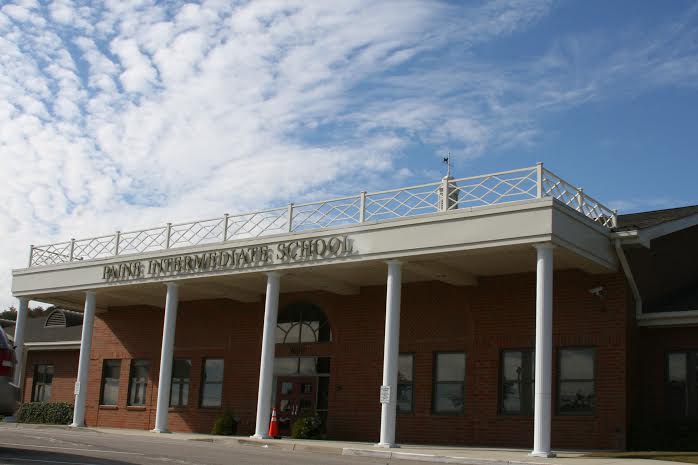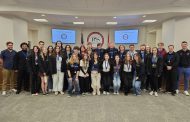Trains cause pains for automobiles in Trussville
By Gary Lloyd
TRUSSVILLE — Admit it, as you’ve steered your vehicle slightly left into the Main Street turn lane, you’ve peeked behind the Regions Bank building, just to make sure.
Admit it, as you’ve coasted down Roper Road, you’ve peered under the tree line and past buildings, just to catch a glimpse.
Admit it, as you’ve seen old box cars sit motionless between the railroad crossing bars above Pinchgut Creek, you’ve secretly wondered if the conductor has stopped there on purpose, to have a barbecue sandwich at Golden Rule Bar-B-Q.
The truth is that trains break down due to mechanical problems. Trussville Mayor Gene Melton last week admitted there has been a “rash” of them lately, causing railroad crossings to be blocked at South Chalkville Road, Camp Coleman Road, Trussville Springs and Carrington. Melton said, however, this does not happen often, that crossings being blocked for a handful of hours may not happen for another six months.
Last Tuesday, Hewitt-Trussville High School senior Austin Wysor left for school, a short drive from across Camp Coleman Road to the high school on Husky Parkway. He was blocked by a stalled train.
“Happens all the time,” Wysor said.

A train slowly moves by the South Chalkville Road crossing in Trussville last week, as vehicles begin to line up.
photo by Gary Lloyd
Wysor said he waited for about 15 minutes but turned around and went home. He called the school to say he would be tardy because of the train. Wysor waited for a call from a friend to say that the crossing was clear. He made it to school at 10:30 a.m. He missed a quiz that had to be made up.
“Students have to check in and give a note or tell why they are late,” Trussville City Schools Superintendent Pattie Neill said. “In the case of the train, it is an excused tardy. Trains caused students to be tardy twice (last) week.”
Susan Terpay, Norfolk Southern’s public relations director for the state of Alabama, said it is the company’s practice not to block crossings any longer than absolutely necessary. She said two crossings in Trussville were blocked last week due to two minor mechanical issues, which took about two hours to repair.
“We are aware of the importance of public mobility and emergency vehicle mobility,” Terpay said. “We make every effort not to tie up traffic at public crossings in Trussville.”
Terpay said motorists should be patient when a train is blocking a crossing. Common reasons why a crossing is blocked include waiting on the arrival of another train to pass or a train needs to wait for another train to exit the rail yard before it can enter the yard, minor mechanical problems, and trains dropping off or picking up cars from local industries.
“Railroads do not intentionally block crossings,” Terpay said. “Generally there is a good reason why a crossing is blocked.”
Trussville Police Department Lt. Jeff Bridges said the department only gets calls from Norfolk Southern when the railroad company is notifying about scheduled maintenance.
“We usually call them when they have been blocking one of our roads for any length of time,” Bridges said.
Trussville City Council President Buddy Choat said that in his six years on the council, the city has had “numerous conversations with the railroad concerning these blockings and for the most part they have responded positively.”
Melton said that when the Camp Coleman Road railroad crossing is blocked for an indefinite period of time, the city will open up the former Gold Kist site on Will Pond Road for motorists to cut through. A path emerges at the intersection of the Trussville Industrial Park and U.S. Highway 11.
“We just have to have a heads up that (the railroad) is shut down,” Melton said. “We’re having, I guess you’d call it, a lack of communication problem with the railroad.”
Jim Bennett was blocked at the Camp Coleman Road crossing last Tuesday. He took advantage of the city opening the Gold Kist property. But while he waited for 45 minutes at the crossing, he saw some public safety issues.
“While I waited, I watched several people crawl under the train, as well as several people that drove a considerable distance down Camp Coleman (Road) on the wrong side of the road,” Bennett said. “This is an obvious public safety issue, and costly to businesses currently landlocked when a train blocks the roadway.”
Melton said the Carrington subdivision has a system that notifies residents when a train is blocking the neighborhood’s U.S. Highway 11 entrance/exit, instructing them to take the Blackjack Road exit in the back of the neighborhood. To avoid a blocked crossing at South Chalkville Road, motorists should use the Watterson Parkway overpass. Melton said there is only one way in and out of Trussville Springs.
Melton said it isn’t a “high priority” for the railroad company to call the city when a crossing is blocked. He said the city would “appreciate” calls so that the city can provide information to motorists.
“We’re at their mercy,” he said.
Terpay said that if a train is blocking a crossing for an extended period of time, motorists can write down the time, date and how long it was blocked. Note the city, street or route you were traveling on and the DOT number of the crossing, which can be found in close proximity to the crossing. The number is a six-digit number followed by a letter. Drivers can then call Norfolk Southern at 800-453-2530 to report a train blocking a crossing.
Melton said the city, railroad company and the Alabama Department of Transportation have been working for years to get two signals in the downtown Trussville area to alert drivers of crossings blocked by stalled trains. The signals would be located near Watterson Parkway heading into the Main Street area and another further into the downtown district. The two signals would flash when the crossing is blocked, alerting drivers to find an alternative route.
“We haven’t been able to bridge that gap with them yet,” Melton said. “I haven’t figured out how to get those three together yet, but we’re working on it.”
Contact Gary Lloyd at news@trussvilletribune.com and follow him on Twitter @GaryALloyd.







